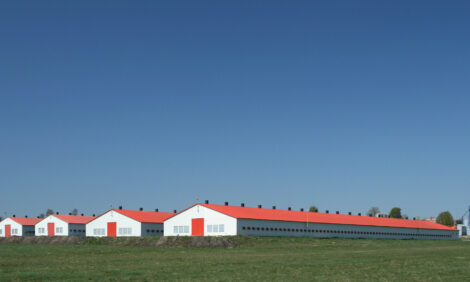



Poultry Sustainability Meeting Explores Roles of People, Nutrition and Breeding
UK – People, poultry feeding and genetics all have an important role in the sustainability of the industry, as Jackie Linden reports from the second day of the Poultry Science Symposium in Chester.The first session of the day focused on 'People as a Sustainable Resource in the Poultry Industry'.
The vital importance of attracting, training and developing talent within the industry was stressed by Dr Colin Whittemore, representing the British Society of Animal Science.
It is the finest young minds of today that will sustain the sector tomorrow and into the future and today’s young people are attracted to jobs that will give them a feeling of being valued, both within the sector and more generally.
Dr Whittemore said that this can be achieved by professional accreditation and governance.
In Germany, this has been taken a step further, as Dr Falko Kaufmann from the University of Applied Science in Osnabruck explained.
There, education on livestock farming already starts after 10 years of school for young people. For those who want to continue in the industry, there are opportunities for vocational training and indeed, continuous education throughout one’s career.
The new Animal Welfare Act in Lower Saxony makes this a requirement for all farm workers involved in the care of poultry.
Dr Kaufmann summed up by saying that, in Germany: “Lifelong learning is now demanded.”
Opening the session on 'The Role of Nutrition in Sustainability', Dr Piet van der Aar of Schothorst Feed Research BV in the Netherlands presented his views on future feedstuff supply and the use of co-products in poultry in the future.
He forecasts a diversification of the sector into three main markets. The first of these, which will cover the majority of production - especially in developing countries - will continue to use nutrient dense diets with the aim of optimising bird performance.
According to Dr van der Aar, in developed countries, there will also be a market for slower-grown birds of less digestible, fibre-rich diets as well as a market for regional poultry products using local feed ingredients (possibly organic).
The limiting factors for nutritional efficiency were explored by Brett Roosendaal, Rainbow Farms (Pty) Ltd, South Africa.
‘Endemic disease – the challenge to reduce antibiotic use’ was the topic addressed by Andrew Walker of Slate Hall Veterinary Services in a session entitled ‘Avian and Human Health: Interactions, Opportunities and Threats’.
As he said, antibiotic use in all fields is under scrutiny owing to the rise in antibiotic resistance, and reminded the audience that use should be “as little as possible and as much as necessary”.
Mr Walker reviewed the difficulties in measuring antibiotic use and went on to describe the 3Rs in this context, namely Reduce, Replace and Refine.
Steve Pritchard of Premier Nutrition turned audience attention on arguably the leading human health concern today in the US and UK: obesity.
Government initiatives aimed to encourage healthier eating and exercise are not having a great deal of impact. However, he said, the industry itself could communicate better its messages of poultry products being low in fat and high in protein, vitamins, minerals and other essential minerals.
Warning that health messages are often seen as boring to the public, he suggested the focus should be on the taste and convenience of poultry meat and eggs.
Dr Pritchard added that there is already a great deal of information on how poultry products can be enriched with nutrients to make them even healthier for consumers.
In the final session of the day on ‘Roles of Genetics and Breeding in Sustainability’, Dr Bill Hill of the University of Edinburgh spoke on the topic of ‘Breeding for sustainability: Maintaining and enhancing multi-trait genetic improvement’.
He outlined the research that shows the huge strides that have been made through genetic selection in both the meat chicken and egg industries over the last five decades or so, highlighting that there is little evidence of a slowing down in the rate of improvement.
Dr Hill focused not only in performance parameters but also those that relate to bird welfare, such as heart/lung health and feet/leg traits.
Last but not least for the day, Dr Mike McGrew, also of the University of Edinburgh, described his work on the development of new tools and resources for genetic management to increase sustainability in poultry production.
His work covers the cryopreservation of germ cells and among the future benefits he outlined for his successful “frozen aviary” is the preservation of rare or specialised chicken breeds.
Similar techniques were used recently to genetically modify chickens to confer resistance to the highly pathogenic H5N1 avian flu virus.








